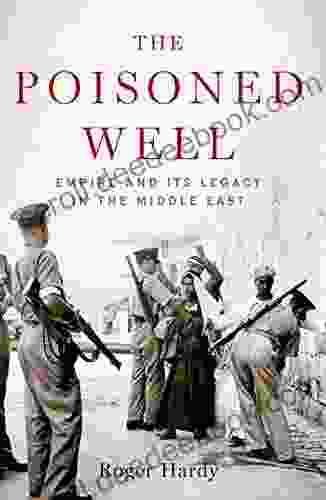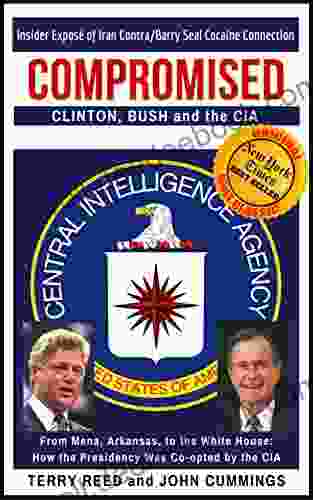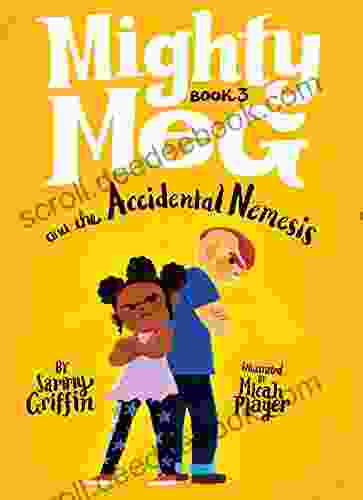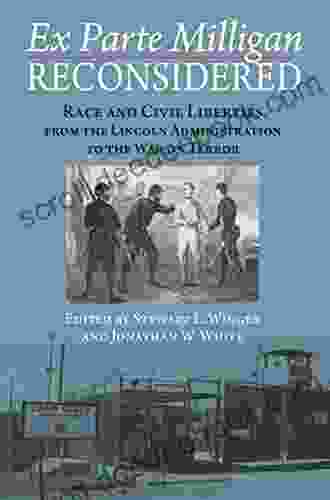The Enduring Legacy of Empires in the Middle East: A Comprehensive Exploration

The Middle East, a region steeped in history and shaped by countless civilizations, has been a stage for the rise and fall of empires for millennia. The legacy of these empires, from the ancient Mesopotamian city-states to the modern European colonial powers, continues to reverberate in the region today, influencing its political boundaries, social structures, and cultural identities.
In this article, we will delve into the complex and multifaceted impact of empires on the Middle East, examining their political, social, economic, and cultural legacies. We will explore how imperial powers have shaped the region's borders, divided its people, and left lasting marks on its societies and cultures.
4.2 out of 5
| Language | : | English |
| File size | : | 8005 KB |
| Text-to-Speech | : | Enabled |
| Screen Reader | : | Supported |
| Enhanced typesetting | : | Enabled |
| Word Wise | : | Enabled |
| Print length | : | 280 pages |
| Lending | : | Enabled |
| X-Ray for textbooks | : | Enabled |
Historical Empires in the Middle East
The history of empires in the Middle East is a long and storied one, spanning from ancient times to the 20th century. Among the most notable empires that have ruled over the region are:
- Sumerian Empire (c. 2900-2350 BCE): One of the world's earliest civilizations, the Sumerian Empire emerged in Mesopotamia and is credited with developing writing, mathematics, astronomy, and irrigation.
- Akkadian Empire (c. 2334-2154 BCE): The Akkadian Empire was the first to unify all of Mesopotamia under a single ruler, Sargon of Akkad. It extended its influence from the Persian Gulf to the Mediterranean Sea.
- Babylonian Empire (c. 1894-539 BCE): The Babylonian Empire, with its capital in Babylon, was known for its advanced laws and administrative system. It also saw the development of the Epic of Gilgamesh, one of the oldest surviving works of literature.
- Persian Empire (c. 550-330 BCE): The Persian Empire, founded by Cyrus the Great, was one of the largest and most powerful empires in history. It stretched from the Mediterranean to the Indus River and played a major role in the development of Zoroastrianism.
- Roman Empire (c. 31 BCE-476 CE): The Roman Empire ruled over the eastern Mediterranean for centuries, including the Middle East. It introduced Roman law, infrastructure, and Christianity to the region.
- Byzantine Empire (c. 330-1453 CE): The Byzantine Empire, a continuation of the Roman Empire, ruled over the eastern Mediterranean and much of the Middle East. It preserved Greek and Roman culture and played a major role in the spread of Eastern Orthodox Christianity.
- Arab Caliphates (c. 632-1258 CE): The Arab Caliphates, founded by the Prophet Muhammad, rapidly expanded from the Arabian Peninsula to control most of the Middle East. They introduced Islam to the region and established a vast empire that fostered cultural, scientific, and economic advancements.
- Ottoman Empire (c. 1299-1922 CE): The Ottoman Empire was one of the longest-lasting and most influential empires in the Middle East. It ruled over much of the region for over 600 years and left a significant mark on its political, social, and cultural landscapes.
- European Colonial Empires (19th-20th centuries): In the 19th and 20th centuries, European powers, including Britain, France, and Italy, established colonial empires in the Middle East. These empires imposed their own political and economic systems on the region, leading to significant changes in its societies and economies.
Political Legacies of Empires
Empires have had a profound impact on the political landscape of the Middle East. They have shaped the region's borders, divided its people, and established political systems that have often persisted long after the empires themselves have collapsed.
One of the most significant political legacies of empires is the division of the region into artificial states. European colonial powers often drew arbitrary borders based on their own geopolitical interests, without regard for local ethnic, religious, or cultural realities. This has led to ongoing conflicts and tensions in the region.
Empires have also played a role in dividing the peoples of the Middle East. By imposing their own systems of government and administration, empires have often created or reinforced sectarian and ethnic divisions. This has contributed to the region's history of conflict and instability.
In addition, empires have left a lasting legacy in the form of political institutions and systems. Many of the political systems in place in the Middle East today have their roots in imperial rule. This includes the legal systems, administrative structures, and educational institutions that shape the lives of people in the region.
Social Legacies of Empires
Empires have also had a profound impact on the social fabric of the Middle East. They have introduced new languages, religions, and customs, and have often disrupted traditional social structures.
One of the most visible social legacies of empires is the of new languages. Languages such as Arabic, Persian, and Turkish have spread throughout the region as a result of imperial conquests. In many cases, these languages have become the lingua francas of trade, education, and government.
Empires have also played a role in the spread of religions. Islam, Christianity, and Judaism have all been introduced to the Middle East through imperial conquests. These religions have had a major impact on the region's cultures, societies, and political systems.
In addition, empires have often disrupted traditional social structures. By introducing new systems of government and administration, empires have often undermined local customs and traditions. This has led to the erosion of traditional tribal and clan structures in many parts of the Middle East.
Economic Legacies of Empires
Empires have also had a significant impact on the economic development of the Middle East. They have introduced new technologies, developed infrastructure, and established trade networks that have shaped the region's economies.
One of the most important economic legacies of empires is the of new technologies. Empires have brought new farming techniques, irrigation systems, and industrial technologies to the Middle East. This has led to increased agricultural productivity and economic growth.
Empires have also played a major role in the development of infrastructure in the Middle East. They have built roads, bridges, canals, and other infrastructure projects that have facilitated trade and communication. This has helped to connect different regions of the Middle East and to promote economic development.
In addition, empires have established trade networks that have connected the Middle East to other parts of the world. This has led to the exchange of goods, ideas, and technologies, which has further stimulated economic growth in the region.
Cultural Legacies of Empires
Finally, empires have had a lasting impact on the cultural heritage of the Middle East. They have introduced new artistic styles, architectural forms, and literary traditions that have enriched the region's cultural tapestry.
One of the most visible cultural legacies of empires is the architectural heritage that they have left behind. From the pyramids of Giza to the Hagia Sophia, the Middle East is dotted with architectural wonders that reflect the influence of past empires.
Empires have also played a role in the development of artistic styles in the Middle East. From the intricate tilework of the Persian Empire to the delicate miniatures of the Mughal Empire, empires have fostered the development of unique and enduring artistic traditions.
In addition, empires have introduced new literary traditions to the Middle East. The Epic of Gilgamesh, the Bible, and the Thousand and One Nights are just a few examples of literary masterpieces that were produced under the patronage of empires. These works have had a profound impact on the cultural identity of the Middle East.
The Enduring Legacy of Empires
The legacy of empires in the Middle East is a complex and multifaceted one. Empires have shaped the region's political boundaries, divided its people, and left lasting marks on its societies and cultures. While some of these legacies have been negative, others have been positive. The enduring legacy of empires is a reminder of the interconnectedness of the Middle East and its place in world history.
As the Middle East continues to evolve, the legacy of empires will continue to play a role in shaping its future. By understanding the impact of past empires, we can better understand the challenges and opportunities that the region faces today.
4.2 out of 5
| Language | : | English |
| File size | : | 8005 KB |
| Text-to-Speech | : | Enabled |
| Screen Reader | : | Supported |
| Enhanced typesetting | : | Enabled |
| Word Wise | : | Enabled |
| Print length | : | 280 pages |
| Lending | : | Enabled |
| X-Ray for textbooks | : | Enabled |
Do you want to contribute by writing guest posts on this blog?
Please contact us and send us a resume of previous articles that you have written.
 Book
Book Chapter
Chapter Text
Text Genre
Genre Reader
Reader Paperback
Paperback Newspaper
Newspaper Paragraph
Paragraph Sentence
Sentence Bookmark
Bookmark Shelf
Shelf Preface
Preface Synopsis
Synopsis Annotation
Annotation Footnote
Footnote Manuscript
Manuscript Scroll
Scroll Bestseller
Bestseller Library card
Library card Narrative
Narrative Biography
Biography Memoir
Memoir Encyclopedia
Encyclopedia Narrator
Narrator Character
Character Catalog
Catalog Borrowing
Borrowing Stacks
Stacks Archives
Archives Periodicals
Periodicals Research
Research Lending
Lending Reserve
Reserve Reading Room
Reading Room Interlibrary
Interlibrary Study Group
Study Group Thesis
Thesis Dissertation
Dissertation Theory
Theory Textbooks
Textbooks Shirley H Wray
Shirley H Wray Liz Clarke
Liz Clarke Amarra Skye
Amarra Skye Geoffrey Prince
Geoffrey Prince Barbara Heidenreich
Barbara Heidenreich Laurence J Yadon
Laurence J Yadon Jack Knight
Jack Knight Mike Stevens
Mike Stevens Kevin Lee Allen
Kevin Lee Allen Peter G Northouse
Peter G Northouse S W Lothian
S W Lothian Mahendra Rai
Mahendra Rai Gabrielle G
Gabrielle G Casey Nash
Casey Nash Nikki Landis
Nikki Landis Jennifer L Summerfield
Jennifer L Summerfield Barb Drozdowich
Barb Drozdowich Carrie Callaghan
Carrie Callaghan Bridget E Baker
Bridget E Baker Tom Watson
Tom Watson
Light bulbAdvertise smarter! Our strategic ad space ensures maximum exposure. Reserve your spot today!

 Darnell MitchellDelving into Modern Plays by Paul Noble: Exploring His Contribution to...
Darnell MitchellDelving into Modern Plays by Paul Noble: Exploring His Contribution to... Marc FosterFollow ·19k
Marc FosterFollow ·19k Richard WrightFollow ·9.5k
Richard WrightFollow ·9.5k Dalton FosterFollow ·8.9k
Dalton FosterFollow ·8.9k Kurt VonnegutFollow ·4.1k
Kurt VonnegutFollow ·4.1k Ibrahim BlairFollow ·12.3k
Ibrahim BlairFollow ·12.3k Clark CampbellFollow ·14.3k
Clark CampbellFollow ·14.3k Galen PowellFollow ·6.1k
Galen PowellFollow ·6.1k Stuart BlairFollow ·3.2k
Stuart BlairFollow ·3.2k

 Howard Powell
Howard PowellDk Workbooks Science Third Grade: An In-Depth Exploration...
Science education plays a...

 Everett Bell
Everett BellLearn to Play Bluegrass Dobro Guitar: A Comprehensive...
: Bluegrass Dobro, A Story of...

 Jeffrey Cox
Jeffrey CoxHow the Raccoon Got His Mask
The raccoon, with its...

 George Bell
George BellHannah Meets Ruby Hannah Out West: An Adventure-Filled...
Hannah Meets...
4.2 out of 5
| Language | : | English |
| File size | : | 8005 KB |
| Text-to-Speech | : | Enabled |
| Screen Reader | : | Supported |
| Enhanced typesetting | : | Enabled |
| Word Wise | : | Enabled |
| Print length | : | 280 pages |
| Lending | : | Enabled |
| X-Ray for textbooks | : | Enabled |













